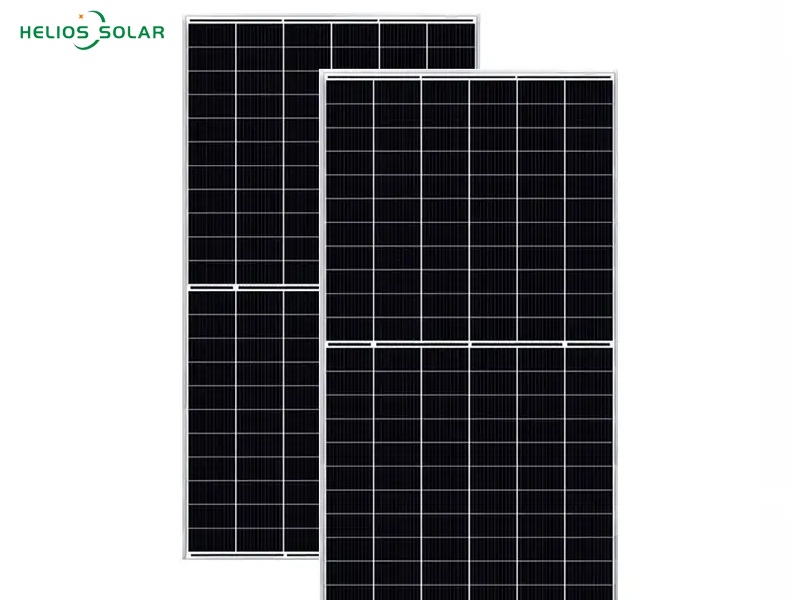Solar panels have become an increasingly popular choice for renewable energy generation because they harness the power of the sun. The manufacturing process of solar panels is an important aspect of their production as it determines the efficiency and quality of the panels. In this article, we’ll explore the solar panel manufacturing process and the key steps involved in creating these sustainable energy solutions.
The solar panel manufacturing process begins with the production of solar cells, which are the building blocks of the panel. Solar cells are typically made from silicon, a widely used and durable material. The first step in the manufacturing process is to produce wafers, which are thin slices of silicon used as the base material for solar cells. Wafers are made through a process called Czochralski, in which silicon crystals are slowly pulled from a bath of molten silicon to form cylindrical silicon ingots, which are then cut into wafers.
After silicon wafers are produced, they undergo a series of treatments to improve their conductivity and efficiency. This involves doping silicon with specific materials to create positive and negative charges, which are crucial for generating electricity. The wafer is then coated with an anti-reflective layer to increase light absorption and reduce energy loss. This process is critical to ensuring that solar cells can efficiently convert sunlight into electricity.
After the solar cells are prepared, they are assembled into solar panels through a series of interrelated processes. These cells are typically arranged in a grid pattern and connected using conductive materials to form an electrical circuit. This circuit allows the power produced by each cell to be combined and collected, resulting in a higher overall power output. The cells are then encapsulated within a protective layer, usually made of tempered glass, to protect them from environmental factors such as moisture and debris.
The final step in the manufacturing process is to test the solar panels to ensure their quality and performance. This involves subjecting panels to various environmental conditions, such as extreme temperatures and humidity, to evaluate their durability and reliability. In addition, the power output of the panels is measured to verify their efficiency and power generation capabilities. Only after passing these rigorous tests can solar panels be installed and used.
The manufacturing process of solar panels is a complex and precise operation that requires advanced technology and expertise. Each step in the process plays a vital role in determining the overall performance and longevity of the panel. As demand for solar energy continues to grow, manufacturers continue to innovate and improve their production methods to make solar panels more efficient and sustainable.
One of the key advances in solar panel manufacturing has been the development of thin-film solar cells, which offer a more flexible and lighter alternative to traditional silicon-based panels. Thin-film solar cells are made from materials such as cadmium telluride or copper indium gallium selenide and can be deposited on a variety of substrates, including glass, metal or plastic. This allows greater versatility in the design and application of solar panels, making them suitable for a wider range of environments and installations.
Another important aspect of solar panel manufacturing is the focus on sustainability and environmental impact. Manufacturers are increasingly adopting environmentally friendly practices and materials to reduce the carbon footprint of solar panel production. This includes using recycled materials, energy-efficient manufacturing processes and implementing waste management and recycling programs. By prioritizing sustainability, the solar panel industry is not only contributing to the global shift toward renewable energy, but also minimizing its own environmental impact.
In summary, solar panel manufacturing is a complex process that involves the production of solar cells, assembly into panels, and rigorous testing to ensure quality and performance. With the continuous advancement of technology and focus on sustainability, the solar panel industry continues to evolve to provide efficient and environmentally friendly energy solutions for a green future. As demand for renewable energy grows, solar panel manufacturing processes will undoubtedly continue to improve, driving the widespread adoption of solar power as a clean, sustainable energy source.
Post time: Aug-01-2024


